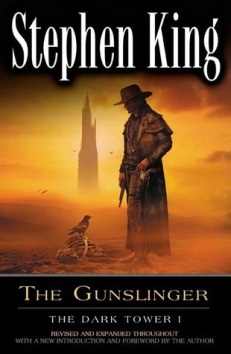
No, the title of this post is not a reference to party etiquette. Rather, it’s a writing principle you might’ve heard before. When composing a scene, it’s often best to begin that scene as late as possible, then end it as early as possible.
Want to bring this concept to your own writing? Here are some thoughts on how to do it.
Entering Late
Dialogue should sound like real people talking, but only to a certain extent. One of my professors described good dialogue as, “The way people would talk if they had time to think of the perfect words.” This makes perfect sense to me. Because if our dialgoue sounds exactly like everyday speech, we’re going to get an annoyingly high percentage of “ums,” “uhs,” and “you knows.”
Now how does entering late/leaving early apply to writing fiction? Well, just think of all the pleasantries we exchange at the beginning and end of most conversations. They’re perfectly acceptable in a casual chat—less so in fiction. For example…
“Hey Marcel, how you doing?”
“Craig, what’s up, man? I’m doing alright. Yourself?”
“Good man, good. Just watching some X-Files. You busy right now?”
“I can talk for a second. What’s up?”
“Well, I uh, I heard the bad news. That’s tough man. People gotta stay off their cell phones when they drive.”
There. We finally arrived at the subject of Marcel and Craig’s discussion: a car accident. Problem is, we entered this conversation too late; the first four lines of dialogue really don’t do anything relevant (although one has to wonder what X-Files episode Craig is watching).
Here’s what it might look like if we start the conversation a bit later:
“Hello?”
“Tell me it isn’t totaled.”
“Hey Craig. Haven’t heard from the auto shop yet. Fingers crossed.”
Since we entered the scene later, we’re thrown right into the action. No messing around with inane chatter at the beginning. This leads to better scenes, better dialogue, and better stories.
Leaving Early
When you reach the end of an article, do you skip over the conclusion? Writing a scene is no different. Once you’ve made your point, people are less interested in anything that comes after. As writers, we should strive to end our scenes before that happens. Here’s another example using the characters from the previous scene:
“I’m just lucky to be alive.”
“Totally Marcel, totally. It was like a super bad wreck. But hey, you’re here now, and that’s what matters.”
“You said it, man.”
“Well, I better get going. The smoking dude just showed up.”
“Oh snap. Alright, later Craig.”
“See ya, Marcel.”
Though I haven’t written the whole scene, let’s presume Marcel and Craig have been discussing the accident. When we leave conversations too late, characters tend to restate what’s been said before. It’s super boring. This scene probably should’ve ended after that first sentence.
And another thing: I mentioned this in a previous post about line breaks, but I think it deserves repeating here. Statements are most profound when they come before a break. So the final sentence before your scene ends should be a good one. Which sounds better to you: “I’m just lucky to be alive,” or “See ya, Marcel”? The answer’s pretty clear.
Conclusion
In an effort to follow my own advice, I’m going to keep things short. Enter late, leave early. You’ll love the results.
Kyle A. Massa is a speculative fiction author living somewhere in upstate New York with his fiancee and their two cats. His stories have appeared in numerous online magazines, including Allegory, Chantwood, and Dark Fire Fiction. To stay current with Kyle’s work, subscribe to his email newsletter. He promises not to spam you.















